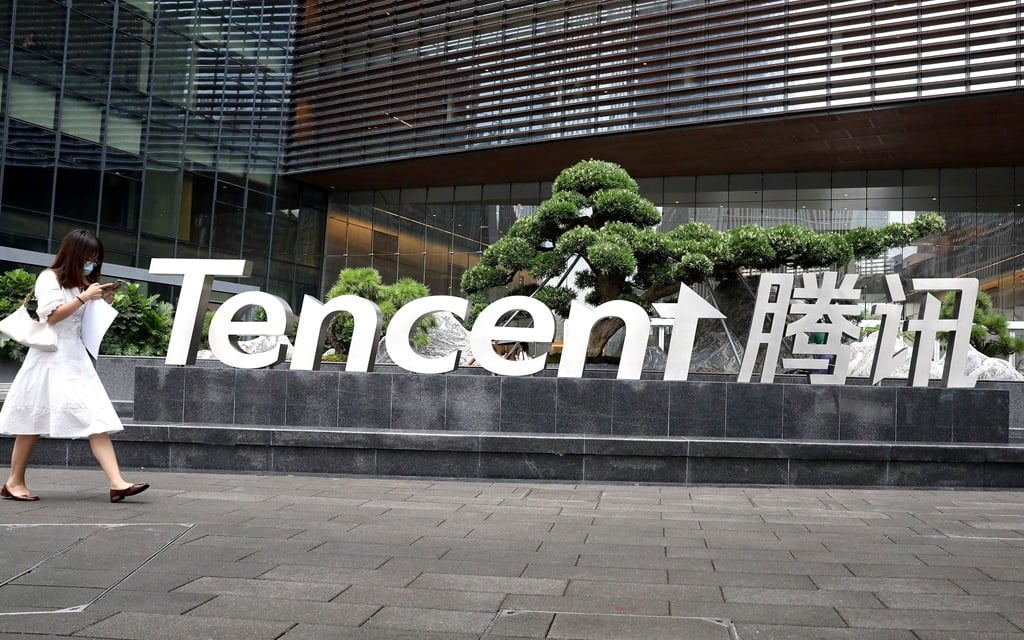
- US officials deliberated but ultimately decided against banning American investment in Alibaba and Tencent, a person familiar with the discussions has said.
- The decision removes uncertainty hanging over Chinese social media and gaming leader Tencent and Alibaba, the e-commerce titan founded by billionaire Jack Ma that’s now under intense regulatory scrutiny by Beijing regulators.
- Imposing a ban on the pair would have marked the most dramatic escalation yet by the outgoing administration, given the sheer size of the two firms and the difficulty unwinding positions.
US officials deliberated but ultimately decided against banning American investment in Alibaba and Tencent, a person familiar with the discussions said, removing a cloud of uncertainty over Asia’s two biggest corporations.
The Treasury Department blocked a Pentagon effort to add the two internet firms on grounds they aided the military, the person said, asking not to be identified discussing private talks.
Officials also debated blocking search leader Baidu but dropped the plan, the person added. Alibaba’s Hong Kong stock climbed as much as 3.9% while Tencent rose almost 5% on news of the reprieve, which was first reported by the Wall Street Journal. Their dollar bond spreads tightened Thursday morning.
The decision removes uncertainty hanging over Chinese social media and gaming leader Tencent and Alibaba, the e-commerce titan founded by billionaire Jack Ma that’s now under intense regulatory scrutiny by Beijing regulators. US President Donald Trump has signed an amended version of his executive order banning investment in Chinese military-linked companies, the White House said in a statement Wednesday that didn’t mention any company by name.
Imposing a ban on the pair would have marked the most dramatic escalation yet by the outgoing administration, given the sheer size of the two firms and the difficulty unwinding positions. At more than $1 trillion, their combined market value is nearly twice the size of Spain’s stock market, while the firms together account for about a 10th of the weighting for MSCI’s emerging markets benchmark.
Citing national security, Trump previously signed an executive order in November requiring investors to pull out of Chinese companies linked to that nation’s military. The Defence Department will add more companies to the roster, the person said without elaborating.
That would further fray the relationship between the world’s two largest economies, which have clashed over everything from Covid-19 to Hong Kong. Authorities in Washington have ramped up efforts to deprive Chinese companies of US capital in the final months of the Trump administration, adding to economic tensions as President-elect Joe Biden prepares to take over this month.
“China opposes politicising economic and trade issues and abusing state power and the concept of national security to suppress foreign companies,” Chinese Foreign Ministry spokesman Zhao Lijian said during a regular briefing Thursday. Zhao urged the US to respect market economy principles and provide a fair, unbiased and transparent business environment for foreign companies.
Hasty measures have at times sown confusion in markets and prompted price swings, such as when the New York Stock Exchange reversed course twice on a decision to delist three Chinese telecommunications companies. The NYSE is now proceeding with its original delisting plan after US Treasury Secretary Steven Mnuchin disagreed with its decision to give the firms a reprieve.
Trump’s order banned trading in affected securities starting 11 January. If Biden leaves Trump’s executive order in place, US investment firms and pension funds would be required to sell their holdings in companies linked to the Chinese military by 11 November. And if the US determines additional companies have military ties in the future, American investors will be given 60 days from that determination to divest.




 Publications
Publications
 Partners
Partners












